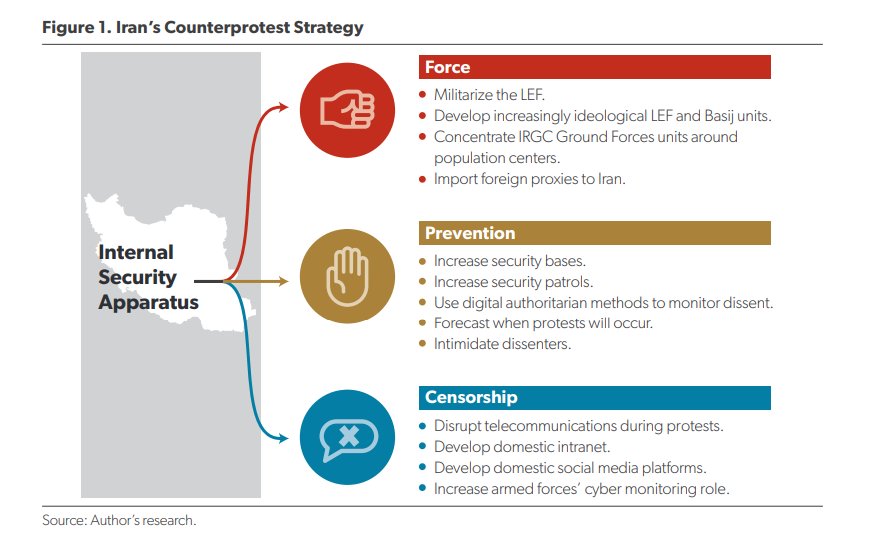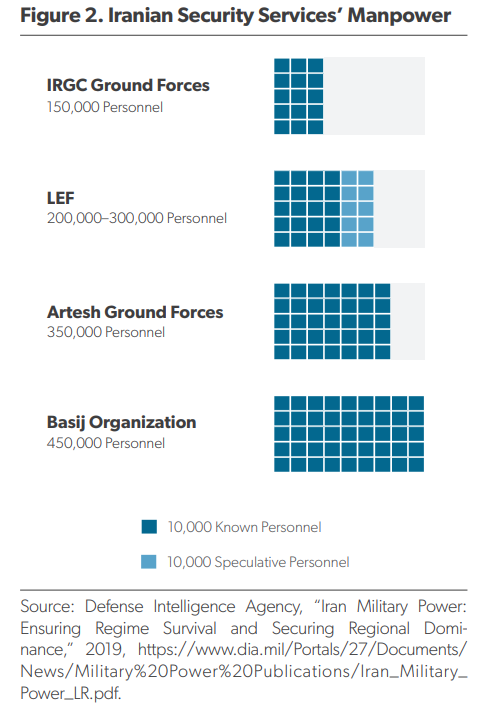
#IranProtests highlight how the regime has prepared itself to brutally crack down on its people. These protests also highlight the cracks in the regime’s security apparatus. A thread: 1/7 #مهسا_امینی #سنندج
The regime has optimized its internal security apparatus to preempt and violently suppress protests. The regime uses a three-pronged counter-protest strategy to achieve this effect. 2/7 

The regime relies most heavily on force to suppress protests. It uses a cohesive and ideological network of military and paramilitary units to do so. This approach is currently on display in the regime’s brutal crackdown in #Sanandaj. 3/7
https://twitter.com/Sima_Sabet/status/1579862044735836160?s=20&t=XOhJy-UbNujwgvHGYG53Sw
These different security services support one another, working together to suppress different kinds of internal threats. This is why reports of dissent and low morale among security forces is so threatening to the regime. 4/7
https://twitter.com/ManotoNews/status/1578996345461182464
The regime deploys the IRGC Ground Forces when it considers protests existential. These forces operate conventional units in cities, focused on fighting Iran’s people rather than foreign enemies. The use of these forces in Sanandaj reflects how concerned Iran’s leaders are. 5/7
Read this report from @NicholasACarl on how the regime has organized and uses its security apparatus to maintain its grip on power. 6/7
criticalthreats.org/analysis/whate…
criticalthreats.org/analysis/whate…
This thread is the first in a series from CTP that will explore the structure of the Iranian internal security apparatus, its strengths, and weaknesses. 7/7
• • •
Missing some Tweet in this thread? You can try to
force a refresh













